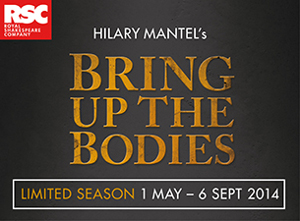
A Shakespeare Performance Resource with Audio
Audio Speeches
RECORDING NOTES
THE VERSE-NURSE TEACHING PURPOSE
Our recordings are purely for verse-nurse teaching purposes. Because of this we do things in recordings that we would not necessarily do in performance, or are unlikely to.
For instance:
-
we pronounce 'war' to rhyme with 'scar' as it did in Elizabethan times. This is to remind listeners Shakespeare heard something different to us today and we need to remain alert to this fact or we miss some telling rhymes (they are not there just to be pretty). Please note this is the only concession we make to original pronunciation otherwise other verse-nurse points would be hard to convey. Professor David Crystal and his son Ben Crystal have done some fine workshops and performances on original pronunciation helping to popularise "OP" in the process. If you are interested in this aspect we highly recommend their books and YouTube listings. See also ACCENT under VOCAL CONSIDERATIONS below.
-
if the metre technically requires it we pronounce words at the end of the line that end in '-ion' or '-ience' or '-ient' with an extra syllable i.e. [con-di-ti-on], [am-bi-ti-on], [im-pa-ti-ence], etc. These are very common. In addition to these, there is the famous instance of [o-ce-an] in Henry V. In Richard lll examples would include [Wood-e-ville] for Woodville, [He-ne-ry] for Henry and [Vaugh-an] for Vaughan. It is not known for sure if Elizabethan actors added syllables to fill the metrical gap, but we illustrate the point anyway in the recordings.
-
if the metre technically requires it we pronounce words with reverse stress i.e. [al-LIES] for 'allies', [ro-YAL] for 'royal', [AD-ver-s'ry] for 'ad-VER-sa-ry' (British pronunciation), etc.
-
if the metre technically requires it we contract words i.e. [VIRt-chus] for 'virtuous', [las-CIV-yous] for 'lascivious', [LOVE-ler] for 'lovelier', etc. Again, we do not know for sure how far Elizabethans travelled in this direction, only that they contracted (elided) far more than 'educated' accents do today. Moreover, before 1600 - roughly the mid-point of Shakespeare's career - [T]s at the end of words were not sounded. Hence the actor playing Lady Anne in Richard lll might have said to Richard "if thou deligh [sic] to view thy heinous deeds..."
VOCAL CONSIDERATIONS
VOLUME For the most part vocal levels are not a problem, but there are times when it is difficult for us to judge the appropriate volume levels for a certain speech. For instance, the famous choruses of Henry V could be spoken intimately or declaimed boldly. There isn't a right or a wrong. Performing live it depends on:
the size of the space
the context in the play (standing on a castle wall or tip-toeing around a lady's chamber while she sleeps)
artistic interpretation
POINTING UP SWITCHES BETWEEN 'YOU' & 'THOU' FORMS Since our aural medium does not allow us to physicalise such switches (by moving closer / further away, etc), we try to reflect them by adjusting vocal combinations of tone, volume, pitch and pace.
ACCENT We are a predominantly British outfit so you get predominantly British accents (from mid-2017 forward we hope to have contributions from our American and Canadian cousins across the pond, as well as from other nationalities). However, Shakespeare works gloriously well in any accent so long as diction is audible and clear. Shakespeare was originally spoken in various accents that lay, for the most part, somewhere between West Country England and Dublin, Ireland. This is not Prince Charles or BBC English; it is not the British accent you will hear. These educated / metropolitan / upper-class accents are 'Received Pronunciation' (often referred to as 'RP' for short, or ‘Ultra RP’ in the case of Prince Charles) and arose from the House of Hanover taking over the English throne in the 18th century. This introduced a much flatter Germanic sound to the royal court which, over time, courtiers, unconsciously or otherwise, assimilated into their speech patterns.
The Northern Broadsides Theatre Company of Britain have a popular following because their muscular northern accents are noted for the way they reinvigorate Shakespeare's text and make it sound fresh. So wherever you are in the English speaking world, if you have a non-British RP accent, so long as you speak clearly and confidently, it could be an advantage. That said, in the age of equality, there is nothing wrong with 'posh' either. In the end it's the quality of interpretation and verse-speaking that count - the two are indivisible.
So don't slavishly follow what we do. Play around and see what works for you. Being generally 'shouty' is not advised, however; the audience can't take it and it's the sort of thing that gives Shakespeare a bad name. Of course, shouting is fine when the context demands it. Some scenes, like the opening of the The Tempest, could hardly be done otherwise. In Henry V, Henry's 'St. Crispin's Day' battlecry might be another (only the last line, not the whole speech!).
Copyright © 2010-2020 Versebuster, ℗ 2010-2020 Versebuster. All rights reserved.




